Sponsored Content
North Macedonians in Vienna and Austria | Bilateral Relations
Austria and North Macedonia - Read the latest headlines about bilateral relations in the areas of economy, business, investment, diplomacy, culture and tourism

Bulgarian Head of State Radew Met Austria's Heads of State
During the first official visit of the Bulgarian President Rumen Radev to Vienna, he met with President Van der Bellen in the Hofburg, Chancellor Bierlein in the Federal Chancellery and President Sobotka in Parliament.
October 7, 2019
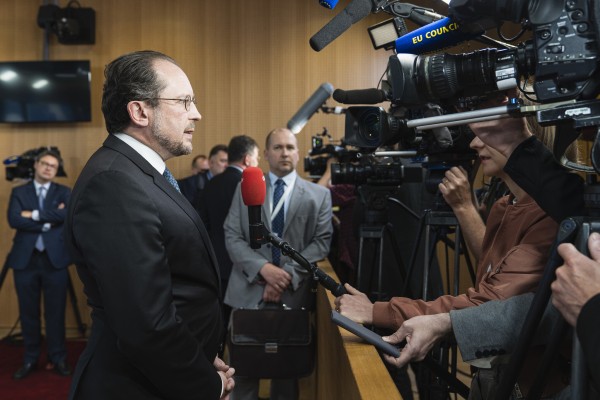
Schallenberg: "Europe is incomplete as long as the countries of the Western Balkans are not part of the EU"
Foreign Minister Schallenberg once again sees Austria within the framework of the EU as one of the strongest advocates for the Western Balkan states and calls at the informal meeting of EU foreign ministers in Helsinki for a rapid rapprochement of the Western Balkan states.
September 3, 2019
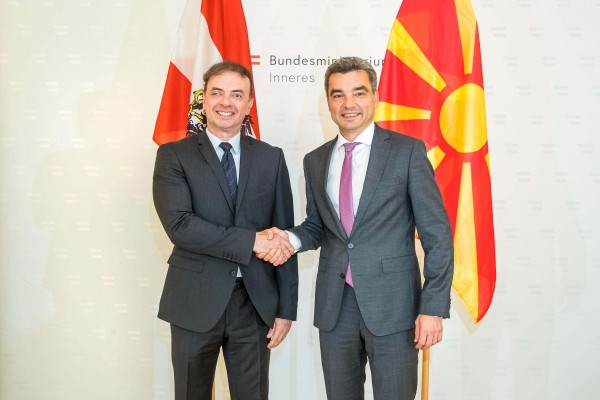
Austrian Minister of the Interior: Observing Developments along the Western Balkans Route Closely
The Macedonian Ambassador Nenad Kolev and Interior Minister Wolfgang Peschorn met for a working discussion in Vienna. In addition to bilateral cooperation, the topic of migration, in particular the Western Balkans route, formed the agenda.
August 13, 2019
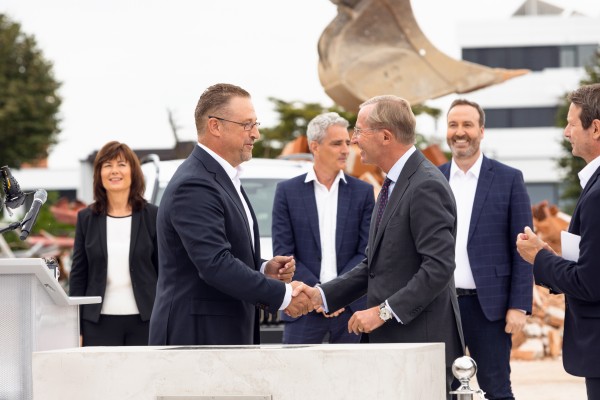
BMW to Invest 28 Million Euros in Salzburg Location

Within the framework of a festive event under the theme "Good for Salzburg. Good for Austria." the BMW Group recently laid the foundation stone for its new BMW Group Campus Salzburg for Central and Southeastern Europe. BMW is investing 28 million euros in the expansion of 400 employees. The inauguration of the new campus is planned for autumn 2020.
August 5, 2019
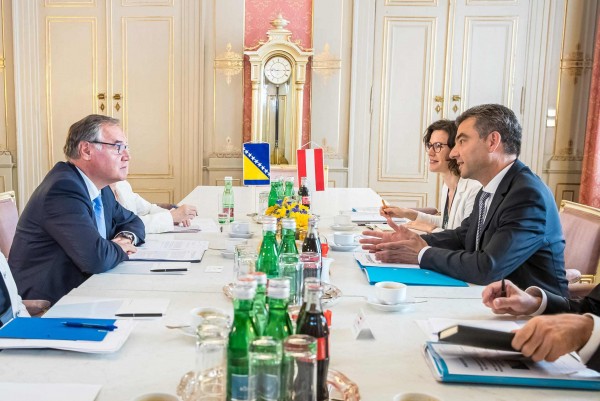
Southeastern Europe Remains Focus of Austrian Foreign and Security Policy
The Ambassador of Bosnia and Herzegovina, Kemal Kozaric, and Interior Minister Wolfgang Peschorn met for a working meeting in Vienna. Bilateral cooperation and migration were on the agenda.
August 1, 2019
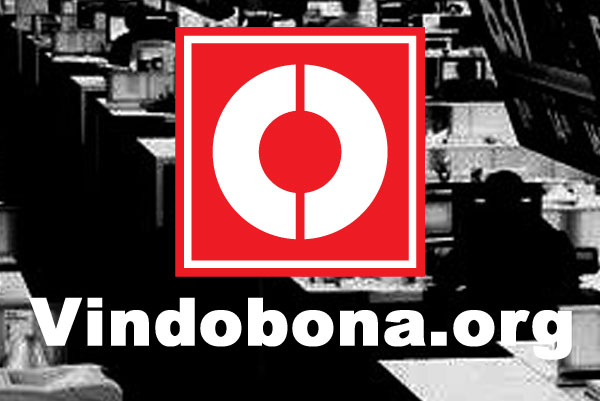
Updated Directory of Foreign Ambassadors in Austria 2019
Below you will find the updated Vindobona.org list of foreign ambassadors and representatives of the bilateral and multilateral missions and representations in Vienna, Austria (including description of persons, pictures, CVs, etc.).
November 19, 2018 · Updated: July 19, 2019; 11:50
Foreign Trade Gains with the Western Balkans
Exports worth 1.35 billion euros to the EU accession candidates of the Western Balkans (Albania, Bosnia and Herzegovina, Kosovo, North Macedonia, Montenegro, Serbia) are balanced by imports to Austria worth 1.25 billion euros.
July 16, 2019
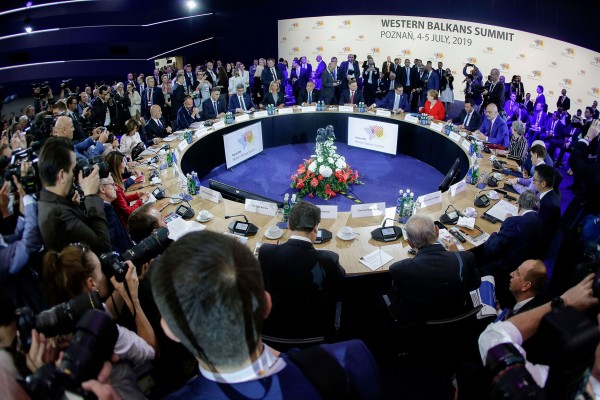
Poznan Summit: Bringing Western Balkans Closer to EU Remains Priority
Chancellor Bierlein at the EU-Western Balkans Summit in Poland. The sixth Western Balkans Conference as part of the Berlin Process, which brings together heads of government from several EU states and their counterparts from the Western Balkans, dealt with connectivity at all levels.
July 9, 2019
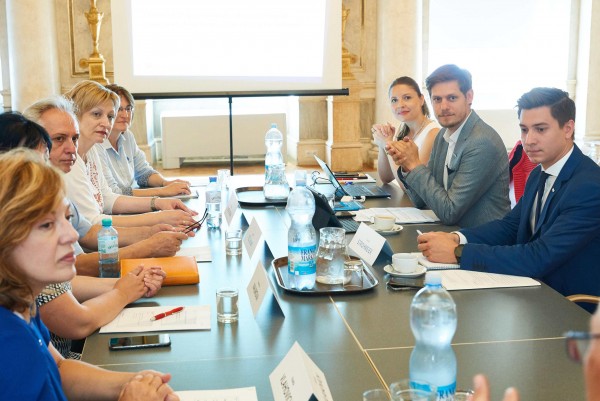
How North Macedonia Learns from Austria - Best Practices on the Topic of Equal Treatment

During a visit of the delegations of the Macedonian Ministry of the Interior and the OSCE Mission Skopje to the Federal Ministry of the Interior in Vienna, representatives of all sides exchanged views on the subject of equal treatment.
July 4, 2019
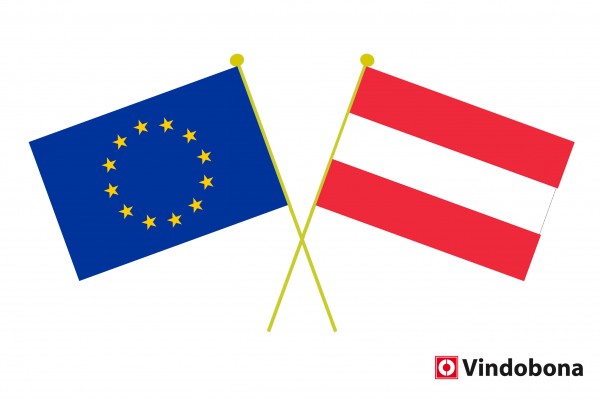
Austrian Foreign Minister Schallenberg at EU Foreign Affairs Council for the First Time
In Luxembourg, Federal Minister Alexander Schallenberg represented Austria for the first time at the FAC Foreign Affairs Council and the Council of the European Union.
June 21, 2019
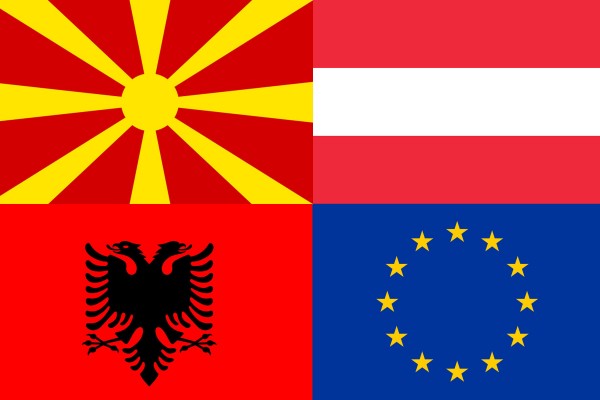
Albania and North Macedonia: No EU Accession Negotiations for the Time Being, but Austria Still in Favor of It
The decision to start accession negotiations with Albania and Northern Macedonia was postponed. Several EU states are blocking enlargement in the Balkans. The EU committee of the Austrian Federal Council demands that the Western Balkans become part of the EU. The Austrian Federation of Trade Unions, on the other hand, warns against hasty new admissions.
June 20, 2019
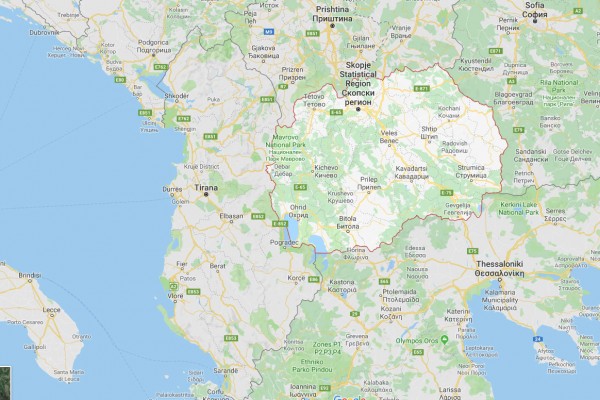
Western Balkans: Austrians Demand EU Accession Negotiations Begin
After the EU Commission issued a recommendation for the opening of accession talks with the two Western Balkan states North Macedonia and Albania, the European parliamentarians of the Austrian People's Party (ÖVP) Karas and Mandl demand that the "promises" be kept. The decision to open accession talks will be taken by the Member States later in June.
June 5, 2019
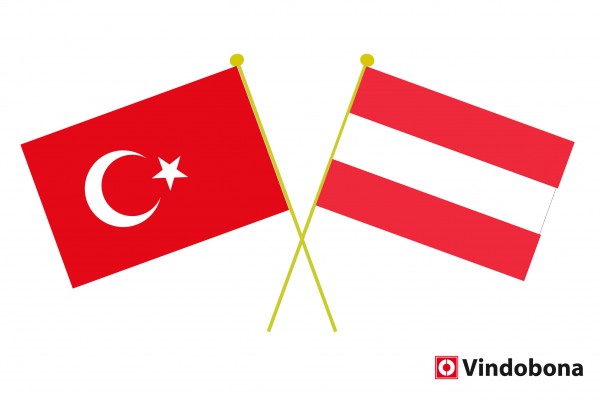
Turkish - Austrian Diplomatic Efforts Bear Fruit
According to outgoing Foreign Minister Karin Kneissl, the Turkish Foreign Minister Mevlüt Çavuşoğlu has promised in a telephone conversation to ease the Turkish blockade of Austria in the "Partnership for Peace (PfP)" programme. The PfP is a NATO program aimed at creating trust between NATO and non-NATO members.
June 3, 2019
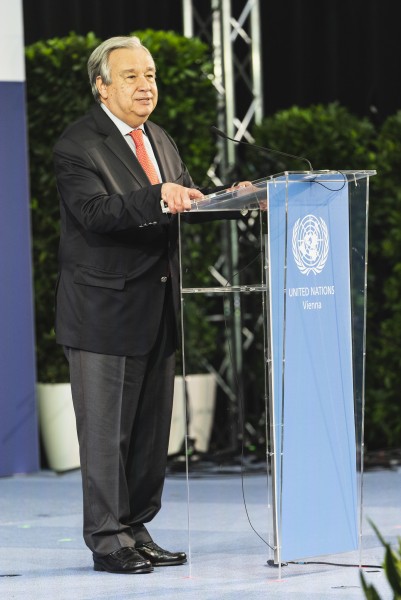
40 Years of the UN in Vienna - The Tireless Commitment of António Guterres

UN Secretary General António Guterres completed a busy programme when he came to Vienna for the 40th anniversary celebrations and the R20 Austria World Summit. The VIC Vienna International Centre is the place where, with the help of the Sustainable Development Goals (SDG), the 193 member states, 15 Vienna-based UN organisations and more than 5000 people from 125 countries from around the world are bound together.
May 31, 2019
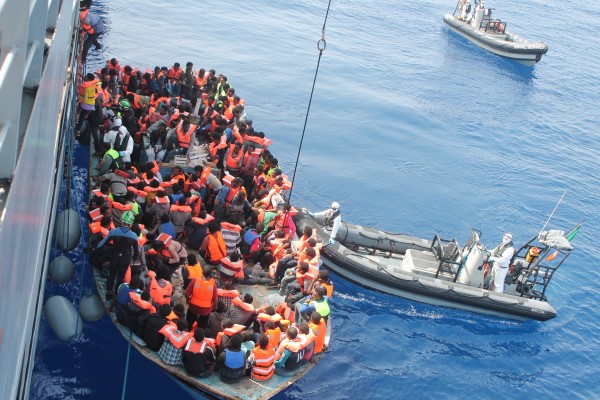
Migration Agency Demands New EU Migration Policy
Vienna based think tank International Centre for Migration Policy Development (ICMPD) is teaming up with its 17 member states to draw up migration policy recommendations for the next EU Commission.
May 10, 2019
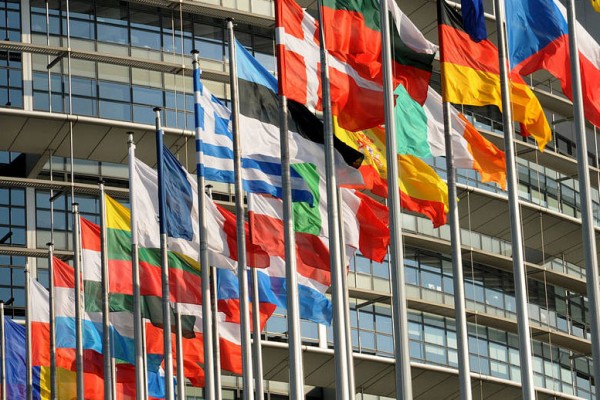
Austria Welcomes 6 New Ambassadors from Armenia, Mali, Namibia, North Macedonia, Trinidad and Tobago and Turkey
On March 19, 2019, Austrian Federal President Alexander Van der Bellen welcomed six newly accredited Ambassadors to Austria to the Presidential Chancellery of the Vienna Imperial Palace for the presentation of their letters of accreditation.
March 20, 2019 · Updated: April 8, 2019; 12:00
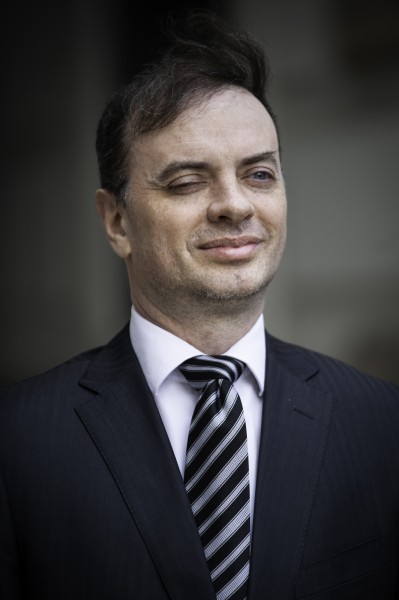
Meet the New Ambassador of the Republic of North Macedonia to Austria: H.E. Mr. Nenad Kolev

The new Ambassador of the Republic of North Macedonia to Austria, H.E. Mr. Nenad Kolev presented Austrian Federal President Alexander Van der Bellen with his letter of accreditation at the Vienna Hofburg.
March 19, 2019
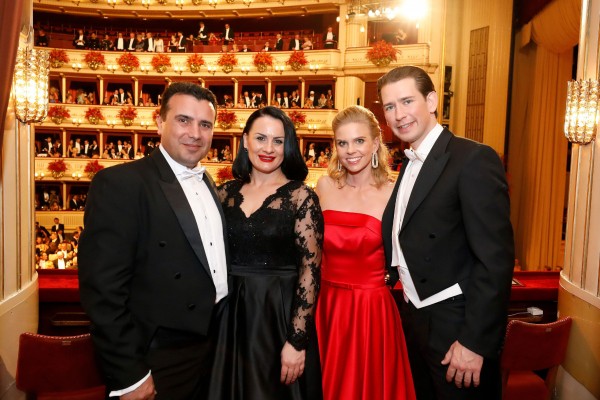
Prime Minister of the Newly Named Republic of North Macedonia at the Vienna Opera Ball

Only a few days after the historic renaming of the Republic of Macedonia into the Republic of North Macedonia, Zoran Zaev, Prime Minister of the Republic of North Macedonia, visited Vienna at the invitation of Federal Chancellor Kurz and together they visited the Vienna Opera Ball.
March 1, 2019 · Updated: March 4, 2019; 12:33
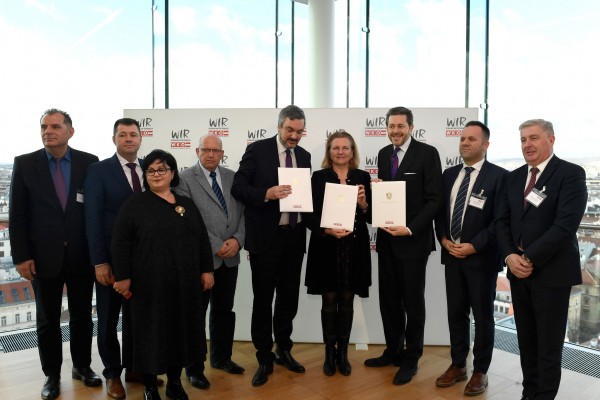
Austria Signed Memorandum with Economic Chambers of Western Balkan States
The representatives of the Economic Chamber and the Ministry of Foreign Affairs, Harald Mahrer and Karin Kneissl, have signed a Memorandum of Understanding with the Economic Chambers of the Western Balkan states Albania, Bosnia-Herzegovina, Kosovo, Macedonia and Montenegro. The aim is to strengthen regional cooperation at the economic level, particularly in the area of dual vocational training.
January 18, 2019

New Austrian Foreign Trade Strategy: Growth, Jobs, Prosperity

In a joint event in the Aula of Sciences, the Federal Government's new foreign trade strategy was presented by Economics Minister Margarete Schramböck, Foreign Minister Karin Kneissl and President of the Chamber of Commerce Harald Mahrer. The key points of the strategy are the following: Perspective, value orientation, location effect, focal points, future orientation, communication, efficient coordination.
December 20, 2018

Sebastian Kurz: EU and Switzerland to Intensify Relations Further
Federal Chancellor Kurz held a working meeting with Swiss President Alain Berset in Bern. The meeting focused on, among other topics, an assessment of Brexit, the Western Balkans, the nuclear agreement with Iran, relations with Russia and the priorities of the Austrian EU Presidency.
November 22, 2018

Enlargement Perspectives for the Western Balkans - The Role of Parliaments
During a panel discussion in the Austrian Parliament, the perspective of enlargement for the Western Balkans and, in this context, the role of parliaments were discussed. The future of the six candidate countries in the Western Balkans is within the EU. They need an honest perspective for this common future with the EU Member States. The EU must contribute to ensuring the stability of the democracies in these countries. The former President of the German Bundestag, Norbert Lammert, attended the discussion.
October 11, 2018

Macedonian Community in Austria: 25th Anniversary of the Macedonian Orthodox Church
According to estimates, 25,000 Macedonians, including many from other parts of the former Yugoslavia, live in Austria. Despite the upcoming historic referendum in the Republic of Macedonia, it could be learned from diplomatic circles, that on the occasion of the Macedonia Austria Days in Vienna and on the occasion of the 25th anniversary of the Macedonian Orthodox Church in Austria a concert of a traditional Macedonian folk dance orchestra with dances and songs and a reception with traditional wines and dishes from Macedonia was held.
October 2, 2018

Key Border Control Strategies Identified at UNODC's Annual Law Enforcement Experts Meeting
A working document on informal standards for border management and control was drafted and shared with participants at UNODC's annual Law Enforcement Advisors Meeting (LEA), held recently in Vienna. The annual meeting allowed for the exchange of best practices within UNODC and with partners.
October 2, 2018

Macedonia's Name Dispute with Greece: Macedonians in Austria Cast Their Votes
The Macedonians will decide next Sunday on a bilateral agreement between Athens and Skopje, which can pave the way for the former Yugoslav republic of Macedonia to NATO and EU membership. Greece, which claims the name Macedonia for its northern region, should be made satisfied with "North Macedonia". The Macedonian foreign voters can vote for the referendum at the diplomatic representations of their country (diplomatic representations in Austria see below). Voters will be asked "Do you support EU and NATO membership by accepting the agreement between Republic of Macedonia and Republic of Greece?"
September 26, 2018

Embassy and Permanent Mission of Nepal in Vienna, Austria
The Embassy and Permanent Mission of Nepal in Vienna's 4th district was opened in November 2017. In addition to serving as the residential Embassy of Nepal to the Republic of Austria, it is also concurrently accredited to Albania, Bosnia Herzegovina, Croatia, Macedonia, Montenegro and Slovenia.
September 19, 2018

Generation Next - Europe's Futures Conference
The conference is the first event of the Future of Europe Task Force meetings, which are to be held in Austria and Romania during their respective Presidency in the Council of the EU. The gathering seeks solutions and encourages action to face the upcoming challenges both to the European Union and to the regions of Central and South East Europe.
September 14, 2018

Marcus Grausam Confirmed as CEO of A1 Telekom Austria AG
Marcus Grausam has been confirmed as CEO of A1 Telekom Austria AG, a subsidiary of A1 Telekom Austria Group. He was appointed interim CEO in October 2017. Grausam will also continue to perform his function as CTO.
September 4, 2018

Austria Prepares for the Presidency of the Council of the European Union: ‘A Europe that protects’
On 1 July 2018 Austria takes over the EU Presidency for six months. The Austrian Presidency of the Council of the European Union will focus on three topics: the fight against illegal migration, digitalisation and stability in the neighbourhood.
June 5, 2018

The Window of Opportunity for the Western Balkans
Will the Western Balkan countries be able to take advantage of the moment and will it bring the year 2018 closer to the European Union? In February 2018, a new Enlargement Strategy was presented in Strasbourg by the EU Commission. Bulgaria, currently having the Presidency of the Council of the EU, will organize a major Balkan’s Summit in May. Austria, for a long time one of the most prominent promoters of the EU Enlargement for the Western Balkans and a country deeply intertwined with the region, will assume the EU presidency in the second half of 2018. This year represents one of the crucial moments for enlargement as major steps need to be undertaken to reach the goal of making the enlargement perspective realistic for 2025.
April 26, 2018

What does the Vienna-based ICMPD and its Director General Michael Spindelegger do?
The International Centre for Migration Policy Development (ICMPD) was founded in 1993 in Vienna on the initiative of Austria and Switzerland with the aim of making migration and mobility of people orderly, safe and regular, including through the implementation of planned and well managed migration policies. The aim is to counteract the often short-term thinking of governments so that sustainable solutions can be found and implemented in the medium and long term to combat and overcome the migration crisis. From this point of view, the tasks of the ICMPD have become extremely topical and important due to the refugee crisis.
April 26, 2018

Goals for Austria's Presidency of the Council of the European Union
On 1 July 2018, Austria will take over the Presidency of the Council of the European Union from Bulgaria. During its Presidency of the Council of the European Union (1 July to 31 December 2018), guided by the motto "A Europe that protects", Austria will focus on three key areas: security and the fight against illegal migration, retaining competitiveness through digitalisation, and stability in the neighbouring regions (particularly the accession of the Western Balkans to the EU).
April 25, 2018

The New Balkans in the Year of Hope for EU Enlargement
2018 has been frequently described as the „year of hope“ for EU enlargement and for the Balkans. In February 2018, a new Enlargement Strategy was presented in Strasbourg by the EU Commission. Bulgaria, currently having the Presidency of the Council of the EU, will organize a major Balkan’s Summit in May 2018. Austria, for a long time one of the most prominent promoters of the EU Enlargement for the Western Balkans and a country deeply intertwined with the region, will assume the EU presidency in the second half of 2018. 2018 represents one of the crucial moments for enlargement as major steps need to be undertaken to reach the goal of making enlargement perspective realistic for 2025.
April 20, 2018

Telekom Austria Prepares Expansion in the Western Balkans
Telekom Austria is strategically strengthening its search for takeover targets and has made EUR 1 billion available in the war chest. CEO Alejandro Plater has announced his intention to expand again in the Western Balkans (Serbia, Croatia and other countries of former Yugoslavia).
April 11, 2018

The OSCE in 2030: Undivided Security in Europe Now More at Risk Than 10 Years Ago
In the Austrian National Defence Academy, the security issue "The OSCE in 2030: Undivided Security in Europe restored?" was discussed in the form of a public panel discussion. At the invitation of the International Institute for Peace (IIP), the Karl-Renner-Institut, the Scientific Cluster for Polemology and Legal Ethics, the FES Regional Office for Cooperation and Peace in Europe (ROCPE), the Austrian National Defence Academy and the ISP Institute for Security Policy, Hannes Swoboda as moderator and the panelists Thomas Greminger, Fyodor Lukyanov, Stephanie Liechtenstein, Alena Kupchyna discussed the hoped-for security policy development of Europe and the OSCE.
March 7, 2018

The Western Balkans Remain a Priority of Austrian Foreign Policy
Because of a common history and the tradition of political, cultural and economic relations, Austrian foreign policy has always attached particular importance to the Western Balkans. The primary goal of Austrian foreign policy is to support the transformation of the Western Balkans area into a zone of stability. From the Austrian perspective there is only one option for the Western Balkans: a full European integration of the region. However, the political commitment from the regions' leaders is expected.
February 28, 2018

Telekom Austria AG / Results for the Full Year 2017
Telekom Austria Group announces its results for fourth quarter and full year 2017, ending 31 December 2017. Group total revenues rose by 3.0% on a proforma basis (reported: +4.1%), EBITDA increased by 2.0% (rep.: +3.2%). Revenue increase driven by growth in fixed-line service revenues and equipment revenues, while mobile service revenues were lower due to roaming; the revenue increase was driven by all markets except for the Republic of Macedonia.
February 13, 2018

Western Balkans Summit was Held in Paris
Following the 2014 Western Balkans Summit in Berlin and the Vienna Western Balkans Summit of August 2015, the third Western Balkans Summit was held in Paris in the context of the ‘Berlin Process’. More than 500,000 of the people with migration background who live in Austria are from the region. Austrian companies have hundreds of branches or subsidiaries in the Western Balkans, which clearly illustrates the very close economic relations.
July 8, 2016

Western Balkans Countries Discussed Investment, Jobs and Integration in Vienna
The World Bank and the Vienna Institute for International Economic Studies (wiiw) held a high-level policy dialogue on ‘Investment, Jobs and Integration’ last week. Ministers and senior officials from the Western Balkans region as well as policy experts from international organisations and the business community gathered to discuss the challenges the region is currently facing, in particular the high unemployment rate, low international competitiveness, and lack of modern infrastructure.
July 8, 2016

CESEE Outlook: Modest Recovery - EU is Obstacle to Growth – BREXIT Poses Uncertainties
According to the latest prognosis of the Vienna Institute for International Economic Studies, the countries of Central, East and Southeast Europe (CESEE) will have a trend growth rate of up to 3% in the period of 2016-2018. This is 1-1½ percentage points higher than average growth in the eurozone. Consumption will be the main growth driver. The Austrian economy is still benefiting from its economic ties with the region. Direct effects of BREXIT on the region will be limited – indirect effects for the European economy as a whole may be considerable.
June 29, 2016

20 Years Comprehensive Nuclear-Test-Ban Treaty (CTBT): Ministerial Meeting at VIC
Marking the 20th anniversary of the signing of the Comprehensive Nuclear-Test-Ban Treaty (CTBT), a Ministerial Meeting was held at Vienna International Center. Hosting some 40 international organizations, Austria is a hub for the promotion of peace, safety and security, sustainable development and the fight against crime, drug abuse and terrorism.
June 20, 2016

Central European Initiative Discusses Refugee Crisis in Banja Luka
Foreign Ministers of the 18 member states of the Central European Initiative (CEI) met in Bosnia Herzegovina, which holds the initiative’s annual rotating Chairmanship this year. Discussions mainly focused on the refugee crisis and potential solutions.
June 20, 2016

The Western Balkans Conference Which Led to Row Over Worsening Refugee Crisis
Convened on the initiative of Austrian Foreign Minister Sebastian Kurz and Austrian Minister of the Interior Johanna Mikl-Leitner, the Western Balkans conference “Managing Migration Together” was held at the Federal Ministry of the Interior in Vienna. 18 foreign and interior ministers from the Western Balkans attended the conference. The participants included the foreign and interior ministers of Albania, Bosnia and Herzegovina, Bulgaria, Croatia, Kosovo, Macedonia, Montenegro, Serbia and Slovenia.
February 26, 2016

Central and Eastern Europe's Financial Elite Gathered at the CEE Forum in Vienna
The 21st Euromoney Central and Eastern European Forum ended in Vienna today, where 1000 delegates from the region joined local and international investors to help plan, debate and analyze the economic agenda for the region for the year ahead. The vast majority of the delegates have a negative outlook for the year 2016. Only one of the participants expects that this year CEE will grow more than 3.5%.
January 20, 2016

Report: Drug Money and Opiate Trafficking on the Balkan Route
A report recently launched by the United Nations Office on Drugs and Crime (UNODC) shows that the total value of illicit heroin and opium trafficked from Afghanistan to Western Europe through the Balkans amounts to some $28 billion every year. Sixty-five per cent of this total ($18 billion) is generated in Western and Central Europe.
December 14, 2015

Austrian Ministry of Foreign Affairs: Council of Ministers Places 27 New Diplomats at Head of Embassies
The Council of Ministers of the Austrian Ministry of Foreign Affairs has decided to place 27 new Austrian diplomats at head of Austrian Embassies worldwide.
December 10, 2015

Journalism Award “Writing for CEE 2015” Goes to Martin Leidenfrost
The EUR 5,000 Writing for CEE journalist prize has been awarded for the twelfth time. Journalists from all round Europe – including Northern Europe, Central and Eastern Europe, South Eastern Europe and the CIS countries – have been invited to submit their works. The Austrian Journalist Martin Leidenfrost wins the “Writing for CEE 2015” award for his column "Expedition Europe". At the award ceremony writer and honorary guest Karl-Markus Gauß touched on the discovery of Europe and SEEMO Secretary General Oliver Vujovic said, that Europe faces new boundaries and divisions.
November 18, 2015 · Updated: November 20, 2015; 19:00

Austria Supports Bosnia and Herzegovina's EU Reform Agenda
The Ministry for Foreign Affairs’ Secretary General, Linhart visited Sarajevo. EU-accession and fight against radicalization were in the centre of the talks. Linhart: “Full support for the Bosnian reform route”.
November 20, 2015

Only Full EU-Integration Can Stabilise the Western Balkans for a Lasting Time
Minister for Foreign Affairs, Sebastian Kurz commented on the European Commission’s progress reports, which were presented earlier this month: “Most of the Western Balkans countries’ progress on their way in direction of EU-membership is noticeable and positive. The Commission’s new methodology renders possible an improved analysis on the progress made in the respective countries in the last year. This creates a positive competition. The new progress reports also underscore that all candidate countries still have a lot of hard work before them and EU support towards this is essential. The current refugee crisis is no exception in this respect as it shows, how important the Western Balkans countries and Turkey are to Europe in tackling this particular challenge.”
November 18, 2015

Linhart: “Foreign Policy Should Focus on Stabilization of Neighbouring Regions”
“The European foreign policy must focus more of its attention on the neighborhood, the stabilization thereof – and in the case of the Western Balkans, their way towards the EU – has to be our European priority”, Secretary General for Austrian Foreign Affairs, Dr. Michael Linhart declared on the occasion of the 19th Europe Forum of the Austria Institute for Europe and Security Policy (AIES) in the Diplomatic Academy of Vienna
November 18, 2015


